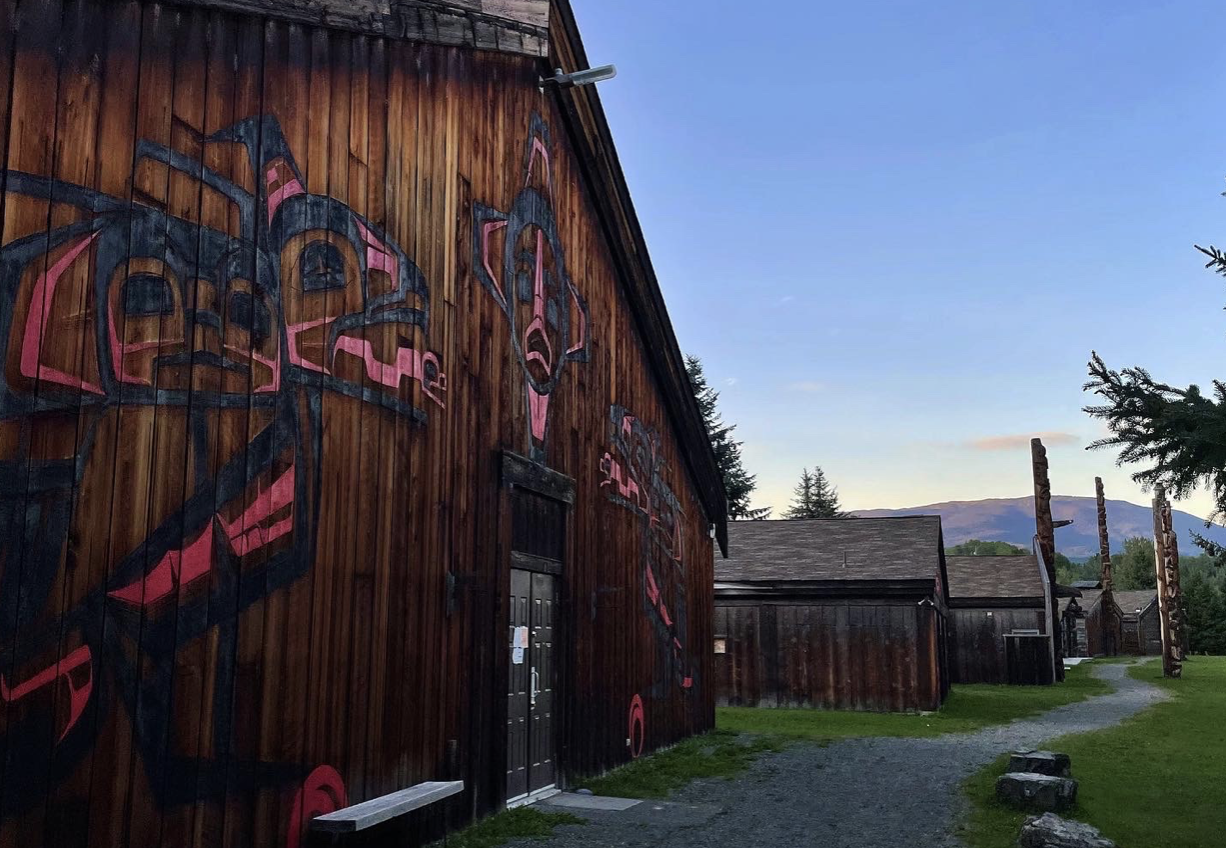Meet two scholars who work to combat climate change through holistic practices

Photo courtesy of Janna Wale.
Indigenous-led climate action is crucial in moving toward a more sustainable future, and programs and research at UVic are dedicated to finding climate solutions grounded in Indigenous worldviews.
We got the opportunity to sit down with two UVic scholars to learn about their work, and their perspectives on this important element of climate leadership.
Janna Wale is the Indigenous Research and Partnerships lead at UVic’s Pacific Institute for Climate Solutions (PICS). Two weeks ago, she was named on the Corporate Knights list of “30 Under 30” sustainability leaders.
“It’s really cool to be recognized in that way,” Wale told the Martlet. She’s proud to be one of the Indigenous youth featured on the list. “I just think it’s so amazing being able to provide a little bit of that representation,” she said.
Wale has been at PICS for just one month, and she was nominated for the award by the PICS team while she was still working at Canadian Climate Institute.
In her new role as the Indigenous Research and Partnership lead, Wale will work with Indigenous Climate Fellow Siila Watt-Cloutier to help inform people and policymakers about the importance of Indigenous knowledge in combating climate change.
Wale is Gitxsan from Gitanmaax First Nation, which is located in northern B.C. at the intersection of the Skeena and Bulkley Rivers. Growing up, she heard stories from members of her community about how the landscape had changed during their lifetimes.
“[This] really resonated with me, and I really wanted to do something of value … that would help my community,” she said.
“We have lived sustainably on these territories for time immemorial,” said Wale. She explained that her graduate studies allowed her to incorporate Indigenous knowledge into her research work for the first time.
Wale looks to nations across B.C. for examples of Indigenous-led climate work. In Gitanyow, a neighbouring community to Gitanmaax, Wale said that traditional burning has been revitalized.
The burning increases the growth of berries, and lowers the risk of wildfire by reducing the fuel load, said Wale. This is one example of how Indigenous land stewardship can flourish even after being banned by colonial government.
Wale said that climate doom is something she’s had to grapple with as a young person inheriting the climate crisis. She spoke with a community member about her concerns, and he helped her see it from a different perspective.
“Maybe it’s not my job to solve the climate crisis,” she said. “All I have to do is do the work that I can, do as much as I’m able to, and just trust that the next generation is going to pick it up and carry it forward.”
Hōkūlani Aikau is another Indigenous scholar working to advocate for Indigenous climate solutions. Aikau is the director of the School of Indigenous Governance at UVic, where she works on building its program.
As Kanaka ‘Ōiwi (Native Hawaiian), Aikau brings a background in Indigenous-based research to her position. She previously worked with a non-profit in Hawaiʻi to restore the farming of taro, a root vegetable that is the primary starch in a traditional Kanaka ‘Ōiwi diet.
“The restoration of wetland taro farming is the restoration of our relationship with our ancestors,” Aikau told the Martlet, explaining that this important plant is considered the older sibling of Kanaka ‘Ōiwi.
“This old, ancient system also supports — and is important for — current and changed weather patterns,” said Aikau. She explained that the restoration of Indigenous systems is crucial to grappling with climate change today.
In the UVic-based research project called “Archipelagos of Indigenous-Led Resurgence for Planetary Health” Aikau works with other scholars to find solutions to climate issues.
“Climate change as we understand it is a product of imperialism, colonialism, and unchecked capitalism,” explained Aikau. “The corrective for that is to not try to use those same systems to fix the problem, but to go back to Indigenous ways of understanding and being in the world.”
“Indigenous peoples have very sophisticated, scientific, verifiable ways of understanding their ecosystems,” she added.
Aikau encourages anyone interested in Indigenous-led climate work to get involved with hands-on restoration work. She uses the Kanaka ‘Ōiwi phrase “maka hana ka ike,” which means “we learn through doing.”
“There’s so many important land [and] water-based restoration projects happening right here on W̱SÁNEĆ and lək̓ʷəŋən territories, and [students] should get involved,” she said.
Aikau looks to the creative arts as an important part of combating climate despair. She says that art “gives a way to vision alternative futures.”
“Once we have a vision for where we want to be, we can reverse-engineer the steps that we need to take to get there,” she said.







